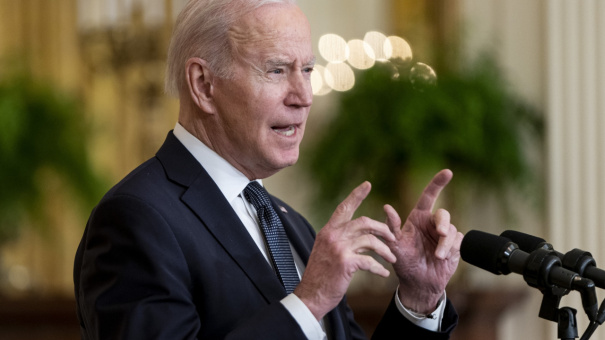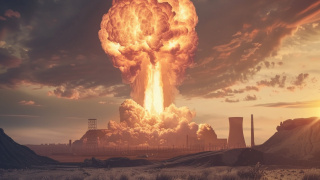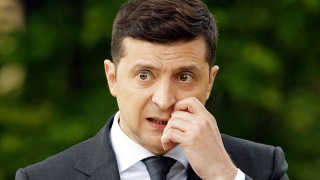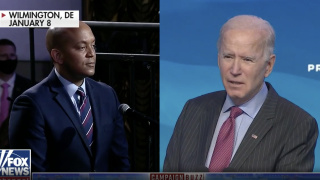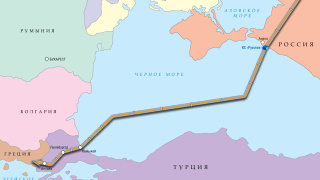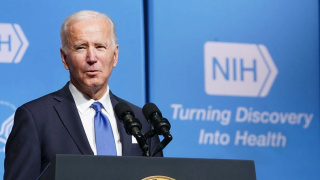Biden’s Latest Ukraine Update Is A Bunch Of Malarkey Except For One Key Point
US President Joe Biden updated the American people on the ongoing Russian-NATO tensions following Moscow’s announcement on Tuesday that many of its troops will be returning to their barracks as scheduled due to the impending completion of military drills. That development led to the collapse of the US’ information-terrorism campaign fearmongering about a so-called “Russian invasion of Ukraine” and prompted American intelligence agencies to deploy their Russophobic back-up plan of once again ridiculously claiming that Russian spies secretly run English-language websites in a desperate attempt to distract their targeted audience from the aforesaid.
His speech on the undeclared US-provoked missile crisis in Europe was a bunch of malarkey (a word that he’s fond of using that literally means “nonsense”) that mostly aimed to paint Russia as a contemporary Nazi-like threat that thankfully blinked under unprecedented American-led Western pressure and thus seems to have pulled the world back from the brink of another global conflict. That bulk of his remarks was nothing but information warfare and should accordingly be ignored by all objective observers, but there was one key point that he made that deserves further attention and that’s his claim that “Neither the U.S. nor NATO have missiles in Ukraine. We do not — do not have plans to put them there as well.”
Biden’s obviously lying since Russian President Vladimir Putin very clearly articulated such concerns from his country’s intelligence agencies while speaking at an “Expanded Meeting of the Defense Board” on 21 December according to the official Kremlin website. Up until this point, however, the US – whether its officials, “experts”, or “perception managers” in the media – had refused to acknowledge its rival’s worries. Instead, the entire crisis was deliberately misportrayed as being over Donbass, a sliver of deindustrialized and war-torn territory along the Russian-Ukrainian border. The very fact that Biden finally felt compelled to at least deny these concerns is a major narrative development.
It might not lead to sea change in America’s discourse on this crisis but it could at the very least make it “acceptable” to publicly discuss Russian intelligence’s concerns, even if only to remind their target audience that Biden simply denied their credibility. Without realizing it, Biden – or whoever it was that wrote his speech – inadvertently undermined the US’ strategic communications campaign and thus afforded Russia a narrative victory in the sense of finally raising awareness of this hitherto “taboo” topic among the Western public. Another interpretation though is that this was deliberate and thus implies that some relevant agreement might eventually be reached between the US/NATO and Russia on this.
After all, Russian Foreign Minister Sergey Lavrov had said earlier that same day that “The swiftness with which NATO has changed its position suggests that not everything is lost in relations with this bloc; [It indicates] that they can admit the obvious when they really want it”, which was mentioned in reference to the US and NATO’s response to his country’s security guarantee requests from late December. While Russia still deems it insufficient, it nevertheless believes that it’s a pragmatic starting point for continuing diplomatic negotiations as evidenced by President Putin’s public commitment to diplomacy following his meetings with Lavrov and Defense Minister Sergey Shoigu Monday evening.
What that key tidbit from Biden’s speech seemingly reveals is that the US and the NATO bloc that it controls are finally coming around to realizing the seriousness of the missile crisis that they provoked with Russia after the American leader belatedly acknowledged his counterpart’s concerns even if only to insincerely dismiss them in public at this point in time. This signifies a step in the direction of revising the European security architecture that had gradually eroded against Russia’s interests following the US’ unilateral expansion of military infrastructure closer to that Eurasian Great Power’s borders driven by Washington’s unstated attempt to eventually undermine Moscow’s nuclear second-strike capabilities.
This observation doesn’t mean that the crisis has finally ended, just that diplomacy is once again a hot topic behind the scenes ahead of Russia passing along its planned 10-page response to the US and NATO’s own response to its initial security guarantee proposals that Lavrov seemed cautiously optimistic about on Tuesday. It’ll of course remain to be seen whether the US sincerely has the political will to seriously pursue whatever proposals Russia is expected to put forth in that document, but this development is nevertheless a positive one when all things are considered since it suggests that the crisis is somewhat de-escalating, at least for the time being barring any provocations in Donbass.
